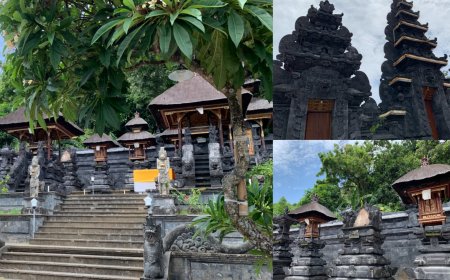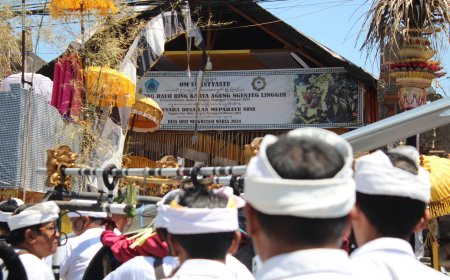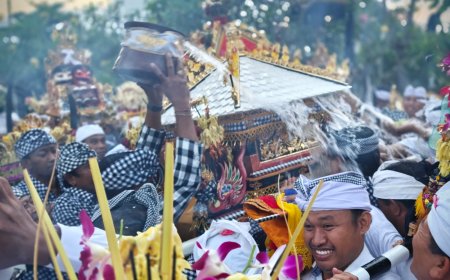Synergy of Health and Ceremony: The Committee’s Dedication in the Grand Ceremony at Desa Adat Mengwitani
In the sacred series of the Grand Ceremony, Ngusabha Desa, and Mapahayu Nini at Pura Desa and Puseh, Desa Adat Mengwitani, the Karya Committee, or Prawartaka, demonstrates a profound commitment to the well-being, particularly the health of the participants. In addition to organizing every aspect of the ceremony, the committee also provides health services for everyone involved. This initiative not only ensures the smooth execution of the rituals but also underscores the importance of integrating physical health with ceremonial practices. This dedication reflects the committee’s commitment to ensuring that health and ceremony are aligned, creating a harmonious and unified experience for the entire community.
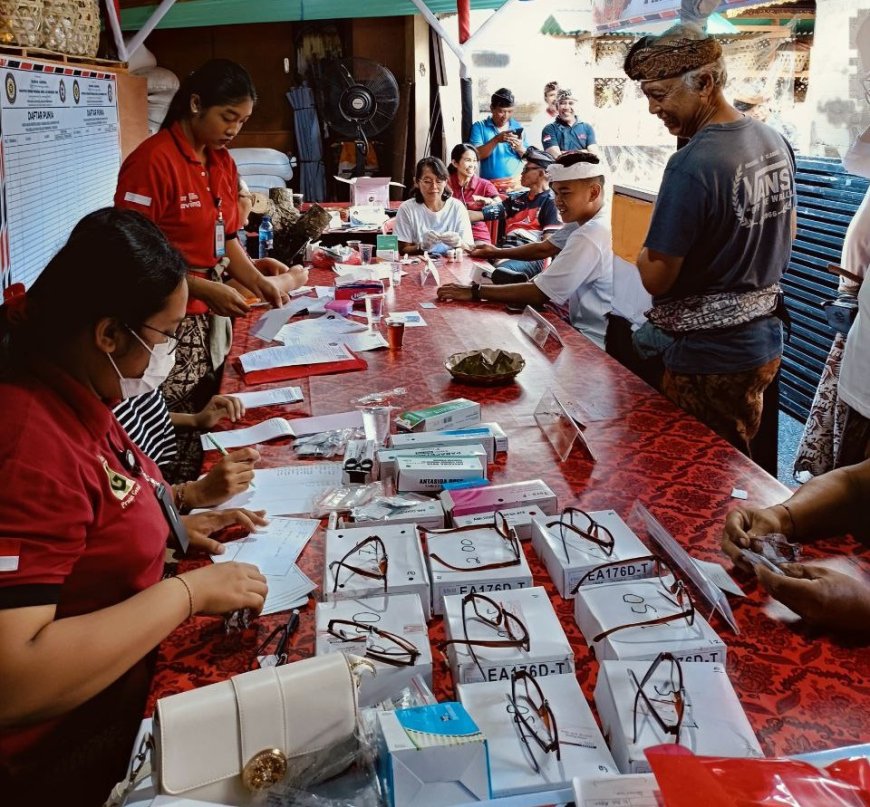
The health services, provided at the committee's stand located at Pura Kawitan Pasek Gaduh, Desa Adat Mengwitani, just south of Pura Desa Puseh Mengwitani, receive valuable support from Klinik Gandi and Puskesmas 1 Mengwi. Under the coordination of Baga (Health Section) led by Dr. Japa, the health screenings are carried out smoothly and effectively. The medical team strives to offer optimal health services to all participants, ensuring they can engage in the event with adequate physical well-being. This success reflects the synergy among various parties in supporting community health and the smooth running of each stage of the ceremony.
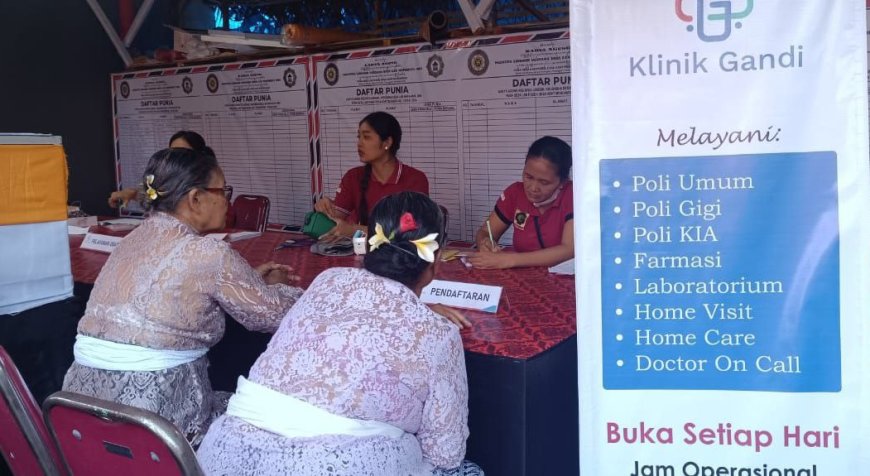
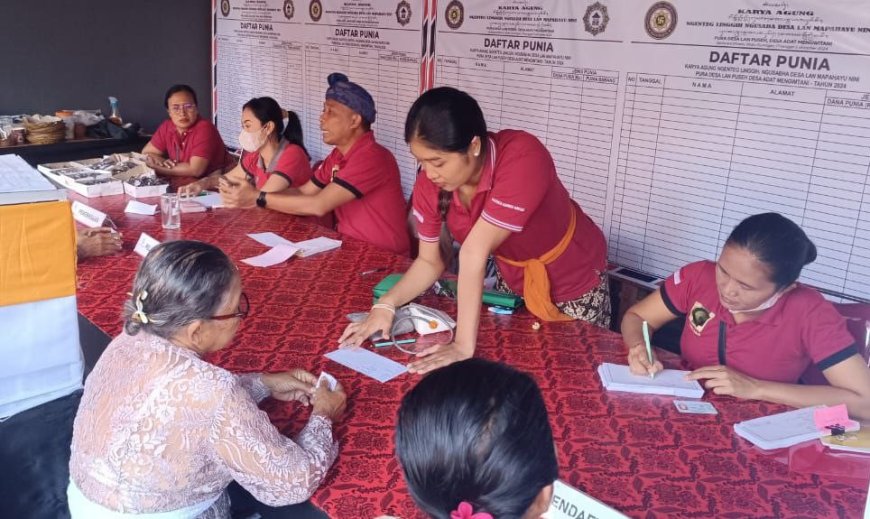
The Situation of Health Screenin
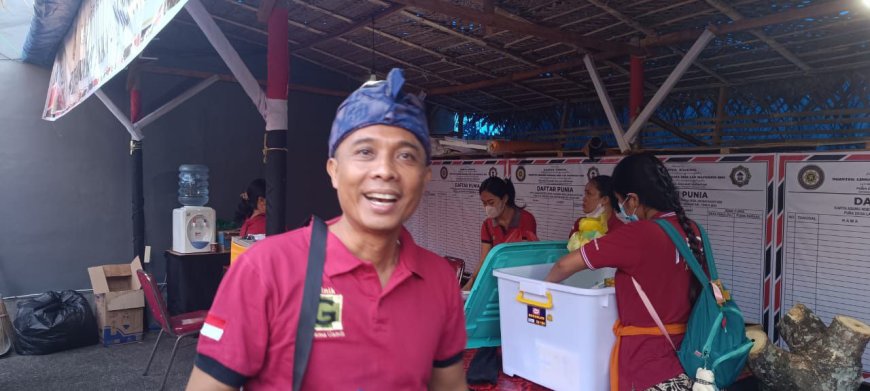
Dr. Japa, Health Sector Coordinator
Two models of health service are provided for the community. The first model is preventive collective health care, aimed at community groups with central roles in the preparation and execution of the ceremony, such as the Serati group (makers of upakara and uparengga yadnya), paguyuban pemangku, peguyuban Juru Pundut, prawartaka, and other community groups. Each of these groups is scheduled specifically to receive health services related to the preparation phase of the ceremony. The first model is preventive, meaning that health services are provided regardless of any specific health complaints from participants. Scheduled screenings ensure that all individuals involved in the preparation and execution of the ceremony receive routine medical attention. This preventive approach helps to detect potential health issues before they become more serious complaints, ensuring optimal physical readiness and health for every member of the community involved.
The second model is direct health care, provided during the event itself. This service is aimed at community members who require medical assistance during the ceremony. When the event is underway and participants or visitors at the temple experience health issues, the Health Team provides immediate first aid. With these two models of service, it is hoped that the health needs of the community during the preparation and execution of the ceremony are effectively met.
Additionally, during health screenings, the community also receives complimentary glasses from Klinik Gandi. This service is designed to support eye health and improve the reading ability of the participants. By providing free glasses, Klinik Gandi not only helps address potential vision problems but also ensures that every individual can fully and comfortably participate in their daily activities.




